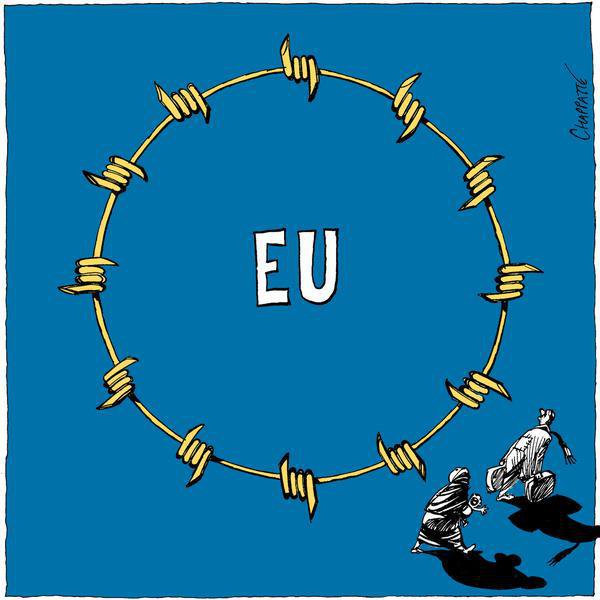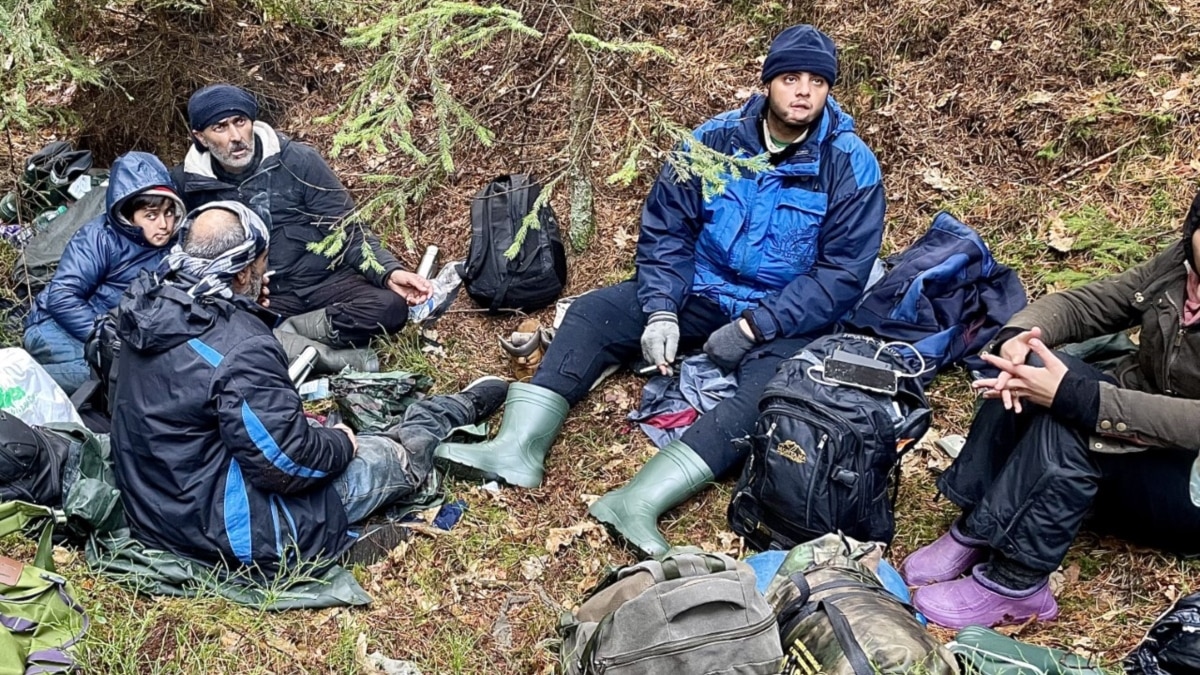[some quotes]
The migrant crisis along Poland’s border with Belarus is a humanitarian time bomb ticking on the EU’s eastern edge. Thousands of asylum seekers have flown to Belarus in recent months, encouraged by expedited visa processing and growing numbers of daily flights from countries such as Yemen, Iraq, Somalia, Afghanistan, and Cameroon. Though the vast majority continue toward Poland, many have sought entry into neighboring Latvia and Lithuania, also EU members.
It’s part of a state-sponsored scheme that rights workers and EU officials say amounts to a “hybrid war” waged by Lukashenka in retaliation for Western sanctions imposed on his government after he claimed a landslide victory in an August 2020 election widely considered rigged and launched a brutal crackdown on protests against his continued rule.
“The main goal is to punish Lithuania and Poland for their backing of the opposition,” said Artsyom Shraybman, a Belarusian political analyst living in exile. “Lukashenka figures he has nothing to lose.”
While the crisis has resonated across Poland, it’s in the east that life has been upended. Locals in Hajnowka and other towns near the border are subject to regular police checks during routine trips to work or the grocery store. Army trucks course through the streets, carrying troops who pack local hotels before duty on the border.
“I feel like I live in a war zone,” said Kasia Wappa, a Hajnowka resident who helps migrants. “And the only people moving around at night are refugees, smugglers, and activists.”
Many risk arrest to help, citing a moral code that they say is lacking in their government’s actions. There’s the hotel waitress who scours local roads looking for police checkpoints ahead of an attempt by activists to spirit a family of asylum seekers out of the woods; there’s the taxi driver who transports migrants who make it into town, facing hefty fines and a criminal record if he’s caught; and there are the many full-time volunteers like Wappa who spend their days and most of their nights bringing food and clothing to the migrants.


